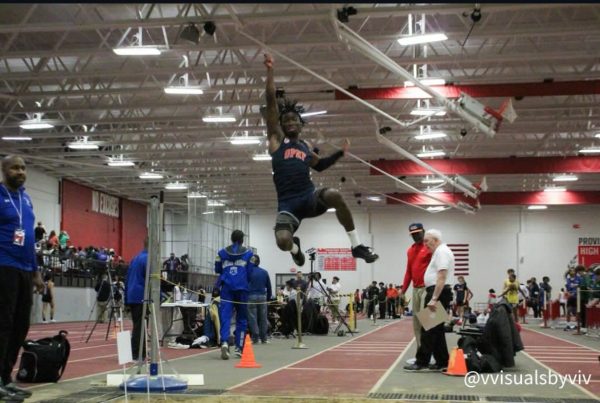Chicago Bears make history, unfortunately
The Chicago Bears aren’t winning football games.
As of Nov. 14, the Bears are 3-7 and have lost six of their last seven games. They sit dead last in the NFC North, even behind the Detroit Lions. This shouldn’t be a huge surprise. No one expected the Bears to come anywhere near the playoffs, but the reason for the losses is definitely a surprise.
Let’s start with the positives. Second-year quarterback Justin Fields is finally looking like a quarterback of the future for the Bears. The former 11th overall pick has found his stride over the last five weeks, averaging 117 rushing yards a game, completing 64 percent of his passes, and setting the record for most rushing yards by a quarterback in a five-game span with 549 yards.
The Bears have accumulated 1,759 rushing yards so far this season, making them the best rushing attack in the NFL. Led by Fields, David Montgomery and Khalil Herbert, the Bears have had over 225 rushing yards five games in a row, going back to the 12-7 loss at home against the Washington Commanders on Thursday Night Football.
As a result of this sudden offensive outburst, the Bears are averaging 31 points per game in the last four games, compared to 16 points per game in the first six games of the season.
So why aren’t they winning games? When a team’s offense performs as well as the Bears’ has recently, they are expected to win games, right? Well if we’re looking for something to blame, it’s pretty easy to point fingers at the defense.
The Bears’ defense has given up an average of 381 total yards of offense over the last three matchups, as well 38 points per game, leading to the Bears being the first team in NFL history to score 29 points or more in three consecutive games–and lose all three games.
The Bears have given up 1,420 rushing yards so far this season, making them the third worst rushing defense in the NFL, as well as allowing 17 rushing touchdowns, the worst out of all NFL teams. The explanation for this could be the Bears losing defensive stars like outside linebacker Khalil Mack, middle linebacker Roquan Smith and defensive end Robert Quinn, all of whom were traded to either clear space in the salary cap or gain trade capital for the upcoming draft.
The question that remains is this: what should the Bears try to accomplish in the 2023 offseason? Do they try to surround Fields with offensive talent, like trying to get a better o-line or receiving core, or do they try to fix a struggling defense which doesn’t seem to be able to stop anything at the current moment?
Fields has been sacked the most out of any other NFL quarterback. However, seeing the success in the run game shows that the o-line might not be able to pass block, but they can definitely run block.
If the Bears want to commit to an identity of running the ball at other teams and using their mobile QB as primarily a weapon on the ground, they shouldn’t look for offensive lineman or receivers. Instead, they should look for additions they can make on defense, trying to add talent to a struggling front seven in the draft or in free agency via the $115 million in cap space that has been acquired through various trades made so far this year.
If the Bears want to try and evolve Fields into a true dual-threat quarterback they should look to develop their young receivers and offensive lineman, as well as adding weapons in free agency and the draft, although as we have seen so far this year, a good offense doesn’t mean anything if you have a bad defense. No matter what direction general manager Ryan Poles decides to go, the foundation is there for a young team with lots of talent to compete in the near future.





